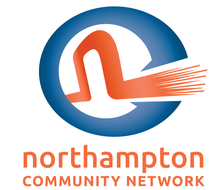Is 5G a good reason for Northampton not to build a community network? In previous posts we started to examine the 5G issue.
There is some confusion about what 5G means. To some, 5G has to do with WiFi, specifically the 5Ghz spectrum that you can use on a local wireless network. The WiFi specification also supports the older 2.4Ghz spectrum. That spectrum though tended to get overused. The 5Ghz spectrum provides more spectrum for your local devices. The only downside is that 5Ghz signals have a harder time getting through structures, and the signal distance is not as long as for the the 2.4Ghz spectrum.
For most of us though, 5G probably means the 5th generation specification for data communications over cellular networks. This spectrum is sold to cellular network companies like Verizon, AT&T and T-Mobile by the Federal Communications Commission in an open bidding process. Whoever offers the most money gets the spectrum. So this 5G technology will offer dramatically higher data speeds over cellular networks, providing you have a cellular device that supports 5G.
But since the spectrum is sold by the FCC to commercial companies, to use 5G you must contract with a cellular service company. This means that if the City of Northampton wanted to create a community 5G network, it could not be done by deploying its own 5G cellular network. The only way around this would be for the city to pay a cellular company to do so. Some cellular providers do this already. For example, Ting uses T-Mobile’s network for GSM phones and Sprint for CDMA phones. It’s unlikely that a cellular company would do this because it would probably not be profitable to offer their networks to the city, since it would be at a discount. Nor is it clear that they would have enough spectrum to support all the bandwidth the people of Northampton would need.
A community network could choose to place WiFi in certain areas of Northampton, such as downtown. Given the short range of WiFi signals, it could not be deployed everywhere. And factors such as the density of buildings will affect signal strength and integrity.
As was noted in our last post though, fiber is forever. It can deliver the bandwidth the residents and businesses of Northampton want, and more quickly, since the signal delay of cellular networks would not be an issue.
